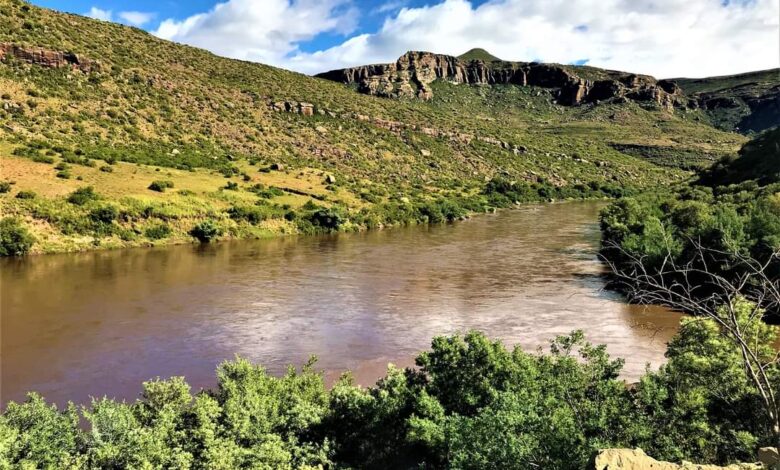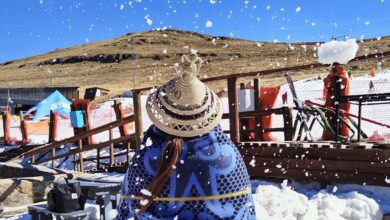Famous Rivers of Lesotho

Lesotho, a landlocked country nestled in the heart of Southern Africa, is renowned for its mountainous landscapes and rich cultural heritage. Among its natural wonders are several prominent rivers that play crucial roles in the country’s ecology, economy, and daily life. Here’s a look at some of the most significant rivers in Lesotho.
1. Senqu River (Rivière de Senqu)
The Senqu River, also known as the Orange River in South Africa, is the most substantial river in Lesotho. Originating in the highlands of the Drakensberg Mountains, it traverses the country and flows into South Africa. The Senqu River is vital for irrigation and agriculture in the region, providing water to many communities. Its scenic beauty and importance make it a key feature of Lesotho’s river system.
2. Makhaleng River
The Makhaleng River, a major tributary of the Senqu River, is notable for its role in the central and southern parts of Lesotho. It originates from the highlands and meanders through various landscapes before joining the Senqu. This river is crucial for local agriculture and supports several small-scale farming activities in its basin.
3. Tsoelike River
The Tsoelike River is another significant river in Lesotho, flowing through the western and central parts of the country. It is a tributary of the Senqu River and contributes to the river’s overall flow. The Tsoelike is essential for the communities living along its banks, providing water for domestic use and agriculture.
4. Khubelu River
Flowing through the eastern regions of Lesotho, the Khubelu River is a key tributary of the Senqu River. It plays an essential role in the local ecosystem and supports various forms of agriculture in its basin. The river is also important for traditional practices and local livelihoods.
5. Ribolla River
The Ribolla River, while less known than some of its counterparts, is an important watercourse in Lesotho. It contributes to the overall river system by feeding into larger rivers like the Senqu. The Ribolla is vital for local communities, offering resources for both drinking and agricultural purposes.
The rivers of Lesotho are not just geographical features; they are lifelines for the country’s inhabitants. They support agriculture, provide drinking water, and shape the landscapes through which they flow. Understanding and preserving these rivers is crucial for maintaining the ecological balance and supporting the livelihoods of those who depend on them. As Lesotho continues to navigate the challenges of climate change and development, the rivers will remain central to the country’s environmental and economic health.
Join 'Lesotho News' WhatsApp Channel
Get breaking Lesotho news — delivered directly to your WhatsApp.
CLICK HERE TO JOIN



